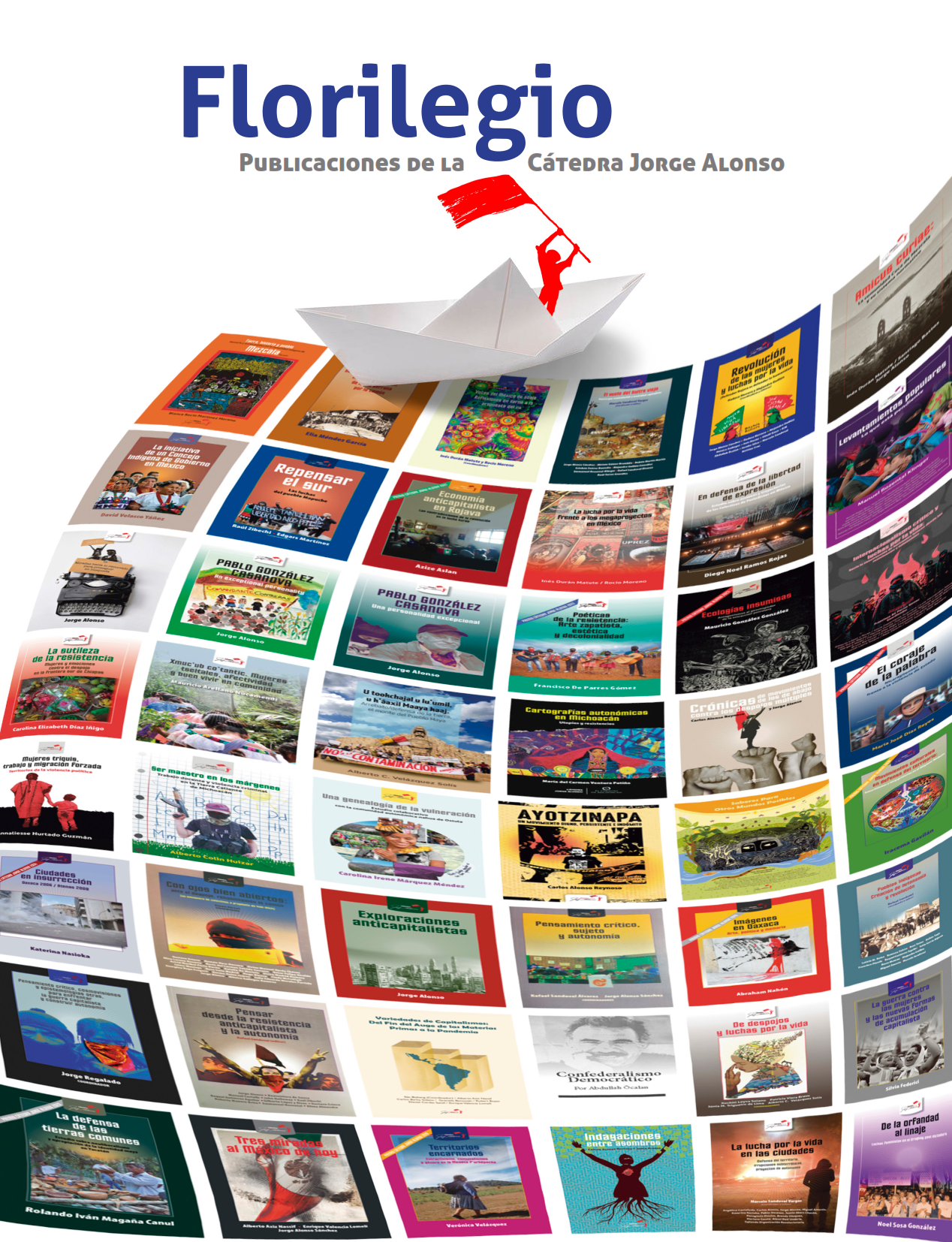Determinantes de la competitividad turística regional en Colombia. / Determinants of regional tourism competitiveness in Colombia.
Resumen
RESUMEN
El objetivo principal de este trabajo es establecer cuáles son los determinantes de la competitividad turística regional en Colombia para el periodo 2016-2019. Su interés se centra exclusivamente en las regiones y departamentos colombianos. A través de la metodología STATIS y utilizando los datos del Índice de Competitividad Turística Regional de Colombia (ICTRC) del Centro de Pensamiento Turístico de Colombia para una muestra de 19 departamentos, se concluye que, las variables más influyentes en los niveles de competitividad son aquellas relacionadas a ámbitos sociales, económicos, de infraestructura y empresariales.
ABSTRACT
The main objective of this work is to establish the determinants of regional tourism competitiveness in Colombia for the period 2016-2019. Its interest focuses exclusively on the Colombian regions and departments. Through the STATIS methodology and using data from the Colombia Regional Tourism Competitiveness Index (ICTRC) of the Center for Tourism Thought of Colombia for a sample of 19 departments, it is concluded that the most influential variables in the levels of competitiveness are those related to social, economic, infrastructure and business areas.
Citas
AUGUSTIN, J. L. & LIAW, S. Y. (2017). “Tourism competitiveness index of the Asia-Pacific region through consistency analysis”, Asia Pacific Journal of Tourism Research. Año:22, nº.12, pp. 1295–1307. https://doi.org/10.1080/10941665.2017.1391855
CENTRO DE PENSAMIENTO TURÍSTICO DE COLOMBIA. (2018). Índice de competitividad turística regional de Colombia ICTRC-2018. Bogotá. Fundación Universitaria CAFAM.
CHIM-MIKI, A. F. & DOMARESKI-RUIZ, T. C. (2018). “Business environment and tourism competitiveness”, Journal Globalization, Competitiveness and Governability, Año:12, nº.2, pp. 79–96.
CÎRSTEA, Ş. D. (2014). “Travel & Tourism competitiveness: A study of world’s top economic competitive countries”, Procedia Economics and Finance. Año:15, nº.14, pp. 1273–1280. https://doi.org/10.1016/s2212-5671(14)00588-7
CROUCH, G. & RITCHIE, J. R. (1999). “Tourism, competitiveness, and societal prosperity”, Journal of Business Research. Año:44, nº 3, pp. 137–152. https://doi.org/10.1016/S0148-2963(97)00196-3
CROUCH, G., & RITCHIE, J. R. (2000). “The competitive destination: A sustainability perspective”, Tourism Management, Año:21, pp. 1–7.
CROUCH, G., & RITCHIE, J. R. (2003). The competitive destination: a sustainable tourism perspective. Cabi Publishing, Wallingford.
DWYER, L., FORSYTH, P. & RAO, P. (2000). “The price competitiveness of travel and tourism: A comparison of 19 destinations”, Tourism Management. Año:21, n°.1, pp. 9–22. https://doi.org/10.1016/S0261-5177(99)00081-3
DWYER, L. & KIM, C. (2003). “Destination competitiveness: determinants and indicators”, Current Issues in Tourism. Año:6, n°.5, pp. 369–414. https://doi.org/10.1080/13683500308667962
ENRIGHT, M. J. & NEWTON, J. (2005). “Determinants of tourism destination competitiveness in Asia Pacific: comprehensiveness and universality”, Journal of Travel Research. Año:43, n°.4, pp. 339–350. https://doi.org/10.1177/0047287505274647
ESCOUFIER, Y. (1973). “Le traitement des variables vectorielles”, Biometrics. Año:29. 29, n°.4, pp. 751–760. https://doi.org/10.2307/2529140
FAJARDO, E., ROMERO, H., RAMÍREZ, G., VÁSQUEZ, M. & VILLALBA, D. (2020). “Análisis de la actividad económica regional en Colombia: una aplicación de la metodología STATIS”, Revista Espacios. Año:41, n°.24, pp. 359-369.
GABOR, M. R., CONŢIU, L. C., & OLTEAN, F. D. (2012). “A comparative analysis regarding European tourism competitiveness: emerging versus developed markets”. Procedia Economics and Finance. Año:3, n°.12, pp. 361–366. https://doi.org/10.1016/s2212-5671(12)00165-7
HASSAN, S. S. (2000). “Determinants of market competitiveness in an environmentally sustainable tourism industry”, Journal of Travel Research. Año:38, n°.3, pp. 239–245. https://doi.org/10.1177/004728750003800305
KOSIKOVA, M., VASANICOVA, P., & LITAVCOVA, E. (2019). “Analysis of aspects of the tourism development in Slovakia in the context of the European space”, Montenegrin Journal of Economics. Año:15, n°.2, pp. 127–137.
KRUGMAN, P. (1994). “Competitiveness: a dangerous obsession”, Foreign Affairs. Año:73, pp. 28–46.
LAVIT, C., ESCOUFIER, Y., SABATIER, R., & TRAISSAC, P. (1994). “The ACT (STATIS method)”, Computational Statistics & Data Analysis. Año:18, n°.1, pp. 97–119. https://doi.org/10.1016/0167-9473(94)90134-1
LEE, S. (2015). “Research note: quality of government and tourism destination competitiveness”, Tourism Economics. Año:21, n°.4, pp. 881–888. https://doi.org/10.5367/te.2014.0377
NAZMFAR, H., ESHGHEI, A., ALAVI, S. & POURMORADIAN, S. (2019). “Analysis of travel and tourism competitiveness index in middle-east countries”. Asia Pacific Journal of Tourism Research. Año:24, n°.6, pp. 501–513. https://doi.org/10.1080/10941665.2019.1590428
ORGANIZACIÓN MUNDIAL DEL TURISMO. (7 de noviembre de 2019). ¿Por qué el turismo? Recuperado de http://www2.unwto.org/es/content/por-10dejulio 2012que-el-turismo
ORGANIZACIÓN MUNDIAL DEL TURISMO. (20 de noviembre de 2019). Glosario de términos turísticos. Recuperado de https://www.unwto.org/es/glossary-tourism-term
ORGANIZACIÓN MUNDIAL DEL TURISMO. (12 de enero de 2020). ¿Por qué el Turismo? Obtenido de https://www.unwto.org/es/turismo
PORTER, M. (1990). La ventaja competitiva de las naciones. Vergara Editores, Buenos Aires.
RIVADENEIRA, F. J., FIGUEIREDO, A. M., FIGUEIREDO, F. O., CARVAJAL, S. M., & RIVADENEIRA, R. A. (2016). “Analysis of Well-Being in OECD Countries through STATIS Methodology”, Holos. Año:7, pp. 335-351. https://doi.org/10.15628/holos.2016.5003
SÁNCHEZ, M. (2012). “Análisis cuantitativo del Impacto Económico de la competitividad en destinos turísticos internacionales”, Revista de Economía Mundial. Año:32, pp. 103–125.
TERZIĆ, L. (2018). “How tourism destination competitiveness contributes to GDP growth – the case of selected European economies”, Acta Oeconomica Pragensia. Año:2018, n°.3, pp. 24–34. https://doi.org/10.18267/j.aop.606
THIOULOUSE, J., DUFOUR, A.-B., JOMBART, T., DRAY, S., SIBERCHICOT, A., & PAVOINE, S. (2018). Multivariate analysis of ecological data with ade4. Springer: United States.
VERA, J. F., LÓPEZ, F., MARCHENA, M. J. & ANTÓN, S. (2011). Análisis territorial del turismo y planificación de destinos turísticos. Tirant Lo Blanc, Valencia.









